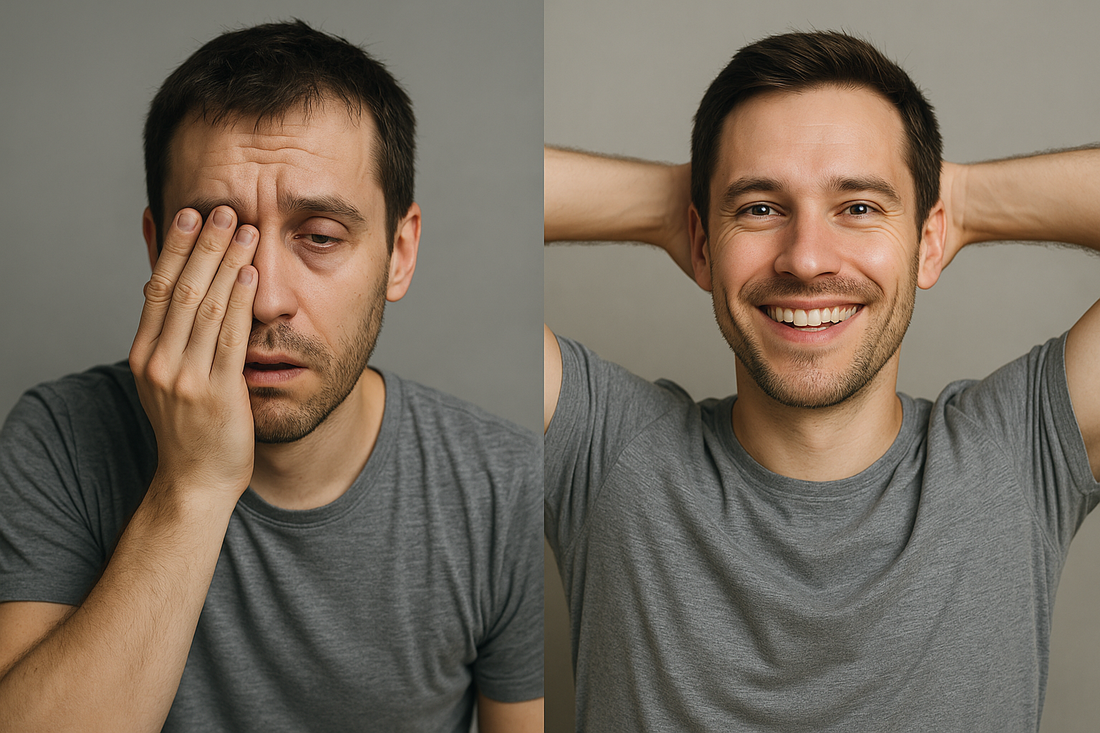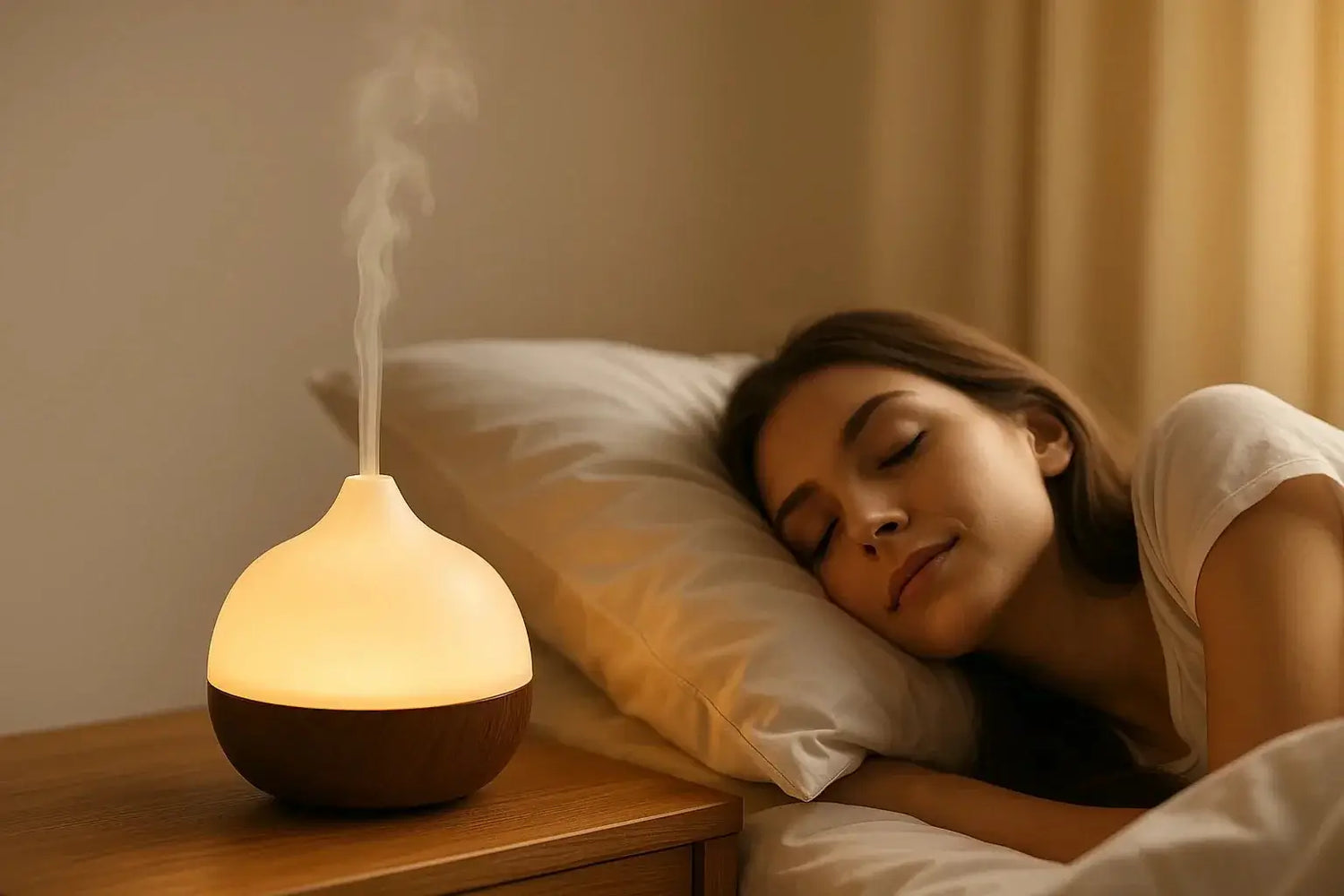
Effects of No Sleep: What Happens to Your Body and Brain
Share
Hey there, sleepyheads! Have you ever found yourself tossing and turning at night, only to wake up feeling like a zombie the next day? If so, you’re not alone. The effects of no sleep are something we’ve all experienced at one point or another, and let’s be honest, they can be downright terrifying. Today, let’s dive into what happens to your body and brain when you skip out on sleep, and how you can bounce back. Whether it’s one sleepless night or a stretch of insomnia, sleep deprivation can wreak havoc on your health. So, grab your favorite mug of herbal tea, and let’s get cozy!
The Short-Term Effects of No Sleep
24 Hours Without Sleep
So, what happens after just one night of no sleep? Well, for starters, you might find yourself feeling more irritable and moody. Research shows that after 24 hours of sleep deprivation, cognitive function can take a significant hit. In a study from Harvard Medical School, participants experienced impairments in attention, alertness, reasoning, and problem-solving abilities. It’s almost like trying to function with a foggy brain.
48 Hours Without Sleep
If you think 24 hours is tough, try going for 48. By this point, you’re not just dealing with minor irritability. Your reaction times slow down, and tasks that once felt easy become monumental challenges. One study published in the journal SLEEP found that sleep deprivation for 48 hours could impair cognitive performance equivalent to being legally drunk! Yes, you read that right—two days without sleep can make you less sharp than a tipsy friend at a party!
72 Hours Without Sleep
Now, let’s take it a step further. After 72 hours of no sleep, the effects become even more dire. Hallucinations, paranoia, and severe cognitive dysfunction could start to set in. In fact, the same study from Harvard found that prolonged sleep deprivation can lead to decreased immune function, which makes you more prone to illness. Not cool, right? So, if you're planning on binge-watching a series, maybe consider investing in something like a 3D Sleep Mask to catch some serious Z's instead!
Long-Term Effects of No Sleep
Now that you know how no sleep impacts your short-term well-being, let’s talk about the long-term effects. Regularly skipping sleep can lead to chronic health problems, including:
- Weight Gain: A consistent lack of sleep can mess with your hormones, increasing the levels of ghrelin (the hunger hormone) and decreasing levels of leptin (the hunger-suppressing hormone), leading to weight gain.
- Heart Disease: Sleep deprivation can raise your risk of hypertension and heart disease. Studies show that individuals who sleep less than six hours a night tend to have higher levels of inflammation.
- Diabetes: According to the American Diabetes Association, sleep deprivation can lead to insulin resistance, increasing your risk of type 2 diabetes.
- Mental Health Issues: Chronic sleep deprivation has been linked to conditions like anxiety, depression, and other mood disorders.
Impact on Brain Function
Your brain loves sleep! It’s during this time that it processes information, clears out toxins, and consolidates memories. When you don’t get adequate rest, this crucial process gets interrupted. Research from the University of California shows that lack of sleep leads to deficits in creativity and complex thought. Ever had that moment where you couldn't figure out a simple problem due to sleepiness? Yup, that’s your brain on no sleep.
Physical Health Consequences
We’ve touched on some of the long-term impacts of no sleep, but physical health should be a priority. Beyond weight gain and cardiovascular issues, inadequate rest can lead to:
- Weakened immune system—making you more susceptible to illnesses.
- Increased inflammation throughout your body, leading to chronic health conditions.
- Lower energy levels and decreased physical performance.
Fun Fact: A study from the Centers for Disease Control and Prevention revealed that adults who sleep less than 7 hours a night are 30% more likely to report being in fair or poor health!
Mental Health Impact
The link between sleep and mental health is undeniable. Sleep deprivation is a significant contributor to issues such as anxiety and depression. The American Psychological Association found that people with insomnia are five times more likely to develop depression compared to those who sleep well. So, if you find yourself feeling down after a few sleepless nights, don’t brush it off! Prioritize your well-being.
Effects on Immune System
Your immune system is your body’s natural defense mechanism, and guess what? Sleep is crucial for its effectiveness. Studies reveal that sleep deprivation can lead to a reduction in the production of protective cytokines, which are essential for fighting off illnesses. Additionally, a lack of sleep can affect the effectiveness of vaccines. So the next time you’re thinking of pulling an all-nighter, consider that it might make you more susceptible to the next cold going around!
Weight Gain Connection
As mentioned earlier, sleep deprivation can throw your hunger hormones out of balance, leading to weight gain. However, it's not just about feeling hungrier; it also affects your cravings! When you're deprived of sleep, your body craves high-calorie foods, often leading to unhealthy snacking. In a study highlighted by the American Journal of Clinical Nutrition, researchers found that participants who were sleep-deprived consumed more calories each day than their well-rested counterparts. So, if you're looking to drop a few pounds, good sleep is just as important as good nutrition and exercise!
How to Recover from Sleep Deprivation
Okay, so we’ve covered the grim stuff. But how do you recover from sleep deprivation? Here are some tips:
- Create a Sleep Schedule: Try to go to bed and wake up at the same time every day—even on weekends.
- Invest in Sleep Products: Consider using a 3D Sleep Mask to block out light, a Sleep Diffuser for a calming environment, or a 3L Humidifier to maintain optimal air quality.
- Avoid Stimulants: Cut caffeine and sugar, especially in the afternoon and evening.
- Practice Relaxation Techniques: Incorporate meditation and deep breathing exercises into your routine before bedtime.
- Limit Screen Time: The blue light emitted from screens can disrupt your natural sleep cycle, so put down that phone!
Sleep Deprivation vs Poor Sleep Quality: Which is Worse?
Both sleep deprivation and poor sleep quality can have negative effects on your health, but they impact you in different ways. Sleep deprivation refers to not getting enough sleep—like pulling an all-nighter—while poor sleep quality refers to restless or interrupted sleep even if you’re in bed for a full 8 hours. Interestingly, studies have shown that poor sleep quality can be just as damaging as sleep deprivation. It’s crucial to focus not only on quantity but also on the quality of your sleep for your overall well-being.
FAQs about Effects of No Sleep
1. How many hours of sleep do I need?
Most adults need 7-9 hours of quality sleep each night to function at their best.
2. Can I catch up on sleep during weekends?
While sleeping in can help recover some lost sleep, it’s not a perfect solution. Consistent sleep schedules are key for long-term health.
3. What are some natural remedies for sleep deprivation?
Some effective remedies include using essential oils, drinking herbal teas (like chamomile), and practicing relaxation techniques.
4. How can I improve my sleep quality?
Focus on creating a calming bedtime routine, limit screen time, and ensure your sleep environment is conducive to rest (dark, quiet, and comfortable).
So there you have it, friends! The effects of no sleep can be severe, impacting your body and mind in ways you never imagined. But remember, it’s never too late to prioritize sleep for your health. And if you ever need some extra help, don’t forget to check out QuietAura’s amazing sleep products, and pay with peace of mind at checkout using PayPal. Here’s to sweet dreams and restful nights!

